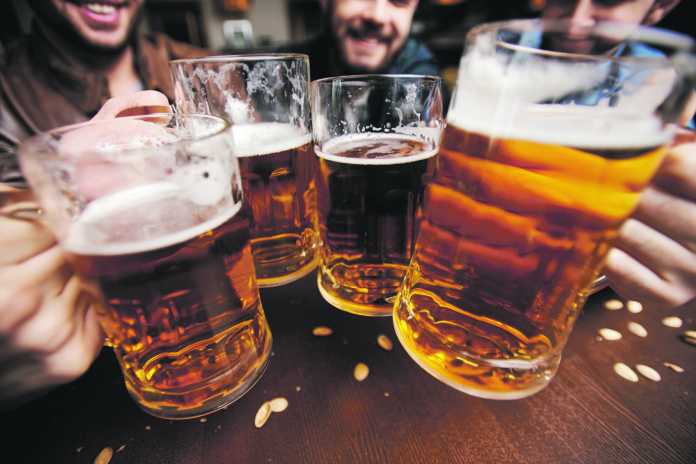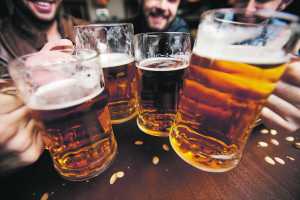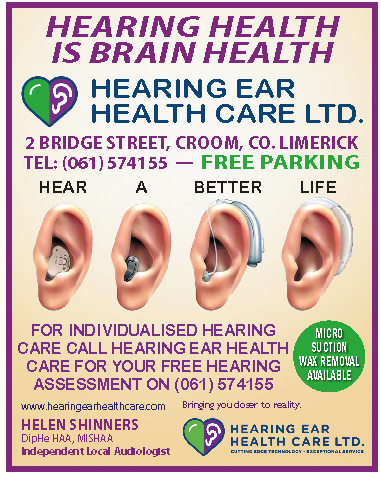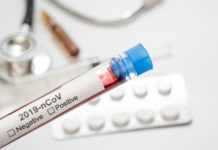
One too many

Luckily for you, I’ve got my eye on the ball, and there won’t be a cent added to the price of a can of Tyskie beer without my prior knowledge. Because that’s what they’re trying to do. It wasn’t enough that they took our jobs, our homes and our savings; now they’re trying to take the one thing we have left, the one thing that keeps us going: our booze.
Okay, so I’m laying it on a bit thick here. There will still be alcohol. We’re not about to enter a prohibition era. You won’t be forced to drink that dodgy home-brew your uncle Tony made in his shed a couple of years ago. But changes are afoot. Big changes.
Last week our Senators discussed the Public Health (Alcohol) Bill, a legislation which, if passed, will see a minimum price per unit of alcohol introduced across the country. Should it be successful, supermarkets will also be forced to hide all the drink in a dungeon beneath the shop. And those dungeons will be guarded by surly, hooded men carrying scythes.
This Bill was introduced way back in January, a time when the mere mention of alcohol had us reaching for the sick bucket, a time when upping its price didn’t affect us because we were off it for life anyway. Now however, with Christmas just weeks away, we’re not so laissez faire
The overall aim of the Bill is to reduce alcohol consumption in this country by 18 per cent over the next four years. Doing so would bring our intake down from 10.9 litres per person to a more reasonable 9.1 litres. It would also see us give up our crown as the world’s greatest drinkers to the Czechs or the Poles or some other less neurotic nation.
I know what you’re thinking; he’s not taking this very seriously. And you’d be right. But there’s a reason for that. You may have been led to believe that our alcohol consumption is at an all-time high, that we are in the throes of a booze epidemic that will kill us all if we even look at a bottle of wine. Not so.

Since then, we have wavered in around the 11 litre mark without ever threatening to reach those peak figures of the early noughties. Yet now we’re being told we have an alcohol problem. It was fine and dandy to drink ourselves to a standstill during the boom years, but now that we’re all earning less and working twice as hard, we’re told that no, you can’t buy those cheap cans from Aldi, certainly not.
As a nation, we have some deep-rooted issues with alcohol, issues that have been brought to the fore by this lengthy recessionary period. But those who seek solace at the bottom of the bottle will do so regardless of how much it costs. Our Government’s way of dealing with these people is to hit them in the pocket and hope they don’t get quite so drunk, that they merely stagger, instead of falling home.
They choose to crunch the numbers and play the short game instead of examining the socio-economic factors that lead to alcoholism. It stands to reason that if there were more people working, fewer people living in poverty and alternative means of entertainment for young people, there would be less alcohol consumed across all demographics.
The other argument is that by raising the price of each unit of alcohol you are making it more difficult for the nation’s binge drinkers – traditionally those in their late teens and twenties – to buy drink in such large quantities at the weekend. That by hiking the price up by a euro, you are ensuring they’ll only have nine shots, instead of their usual eleven, before leaving the house.
Clearly those implementing these changes have very little first-hand experience when it comes to binge drinking. They obviously don’t realise that this is a form of tomfoolery which involves drinking until you can drink no more, drinking until you’re face down in the gutter with your pants around your ankles, drinking until you obliterate all memory of the night before and wake up with nothing more than a deep sense of unease and a dozen missed calls on your phone.
Do they honestly think that a subtle price increase is going to inhibit this most resourceful of drinker? Of course it won’t. It never has. Most would rather empty their wallets, clean out their bank accounts and live on crisp sandwiches for the week than end a night still in possession of their faculties.
The sad fact is that our relationship with alcohol is far too complex, far too multi-layered, to be addressed in monetary terms.
Hiding it in the darkest, dingiest corner of a supermarket won’t help either; if anything that will make it more glamorous, more exciting. Banning adverts? It hardly affected cigarette sales, did it?
Alcohol is a part of us whether we like it or not. Italians have pasta and fashion, the French have baguettes and berets, we have beer and rain. It’s in our culture, it’s what defines us. It gives us character, an identity.
Take it away and we’ll just be those moaning eejits who live on that rainy outcrop in the Atlantic.
Innocence lost

But just as Mary Lou was about to bring up her breakfast, An Taoiseach explained that it wasn’t his own Internet habits he wished to discuss, but those of our children.
For once, he had a point. Whereas previous generations had to make do with well-thumbed skin mags and the occasional flash of flesh on Channel 4, the youth of today have unfettered access to an “avalanche” of no-holds barred, graphic content.
And this content is available to any child with a smartphone, or any child who has a friend with a smartphone.
Being exposed to that kind of material at such a young age is bound to have an impact, it has to. At best, it will normalise the depravity these kids are viewing online, it will build unrealistic expectations of what a normal, loving relationship involves, and it will foster inadequacy and low self-esteem.
At worst? Well, I’m loath to suggest that young people are so impressionable, so incapable of separating fantasy from reality, that their attitudes towards the opposite sex will alter irrevocably if they grow up watching so much porn. But it’s hard not to think that.
We can implement all the firewalls and age-restricted barriers we want. We can limit Internet access, refuse to purchase smartphones and act as a moral gatekeeper, but where there’s a will there’s a way.
And there are very few wills as strong as those of a curious teenager.










